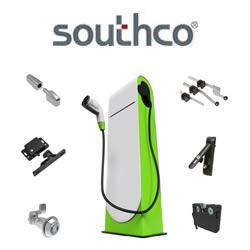California demand for wind power energizes transmission firms
Smart Meters and Utilities
Solar panel researchers investigate powering trains by bypassing grid
Using Industry 4.0 Know-how, North German Region is Going 100% Renewable: Test Run for the Energy Transition
Transmission's Role in a Clean Energy Future
Why Every Rooftop Solar System Needs Energy Storage
Aclara Participates in White House Summit on 'Scaling Renewable Energy and Storage with Smart Markets;' Announces Commitment to Deploy 500,000 Smart Meters with Distributed Solar by 2025
Electric Utilities Prepare for a Grid Dominated by Renewable Energy
Virtual Power Plants Get Around Solar Power's Intermittency Problem
GE's North American Studies Show No Hard Limit to Renewables on a Grid System
Smarter Grid Solutions to Demonstrate Massive Clean Energy Deployment on a Smart Campus in NREL INTEGRATE project
eMotorWerks Announces a Universal Adapter That Converts Any Level 2 EV Charging Station into a Smart Charging Station
Can Smart Grids Solve India's Energy Woes? India Smart Grid Week to Offer Answers
Pika Energy Completes $2.25 Million of $3.1 Million Series A Preferred Stock Offering Equity Financing
India Smart Grid Week: Conference to discuss Potential of Smart Grids Towards Resolving India's Energy Crises
Records 46 to 60 of 94
First | Previous | Next | Last
Featured Product

